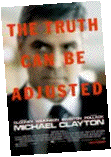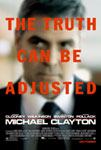
|
|||||||||||||||||||||||||||||||||||||||||||||||||||||
|
We know the networks we're building on Twitter are very fragile things, but they're more fragile than most users have been willing to comprehend, because we can't find out how it works. We have to trust that the company knows, and that they will continue to operate it as they have in the past. However we don't have any right to that service, and if they restricted it or took it away we would have no recourse. Of course it would be a disaster for them as a company, but such disasters have happened before and they certainly will happen again. And what do we actually know about the people who run Twitter? Not all that much. They don't tweet a lot, and when they do, they tend to be short messages, and often cryptic. So while Twitter is useful and fascinating, even intriguing, is it simple? It it not simple. Who do the people of the NY Times follow on Twitter? Yesterday I posted the results of a study of who the people who work at Twitter follow on Twitter. This is important because it is the source of their Suggested Users List, which in turn determines who new users will follow. People and organizations who are placed on this list see a substantial surge in followers, often in the hundreds of thousands. How much this is worth was the subject of a recent Guardian story. It was easy for me to adapt the crawler to also generate a table for the people of the NY Times. I don't know exactly why this is interesting, but it seems people are curious to know if they make it onto the radar of the people at the Times. If there's continuing interest I'll refresh both these tables from time to time.
It has bothered me ever since, but not as a front-burner thing -- I still accept the value of simplicity as a given. As I build layers of software, the simpler I make each layer, the higher I can build. If you don't design to hide complexity behind interfaces, you get overwhelmed by the complexity sooner, and your project can't do as much. Early in my career I often scrapped multiple levels and went down to the roots and rebuilt. Once I understood what the higher levels looked like, it exposed deficiencies in the lower levels. Reworking the lower levels allowed me to build higher. (It happens in other technologies too. For example, the design of office buildings changed radically once elevators had been invented.) The ultimate interface is where you pass off to another user, and a whole new human brain comes into it. As a designer, I try to present a conceptual model to the user that's as simple and predictable as possible. This allows them to focus on their work without mine getting in their way. In the movies they call this "suspension of disbelief." The user gets so wrapped up in the story they forget it's a movie. It starts feeling like life. Even so, I like to create things that can be explored beneath the surface. If you want to "lift the hood" I know you'll see a puzzle, but I hope it's approachable. As I discussed in this week's RTN, I'm working my way through Season 1 of James Burke's Connections series. It aired on PBS in 1978. Yesterday I watched the final episode in the series. It was even more fascinating than the previous nine. Its message is so important that it's worth taking time away from the innovations of our day and to talk about the process of innovation itself, and why it's dangerous. Yes, that's right -- dangerous. I've known this all along, and I've tried to publish warnings, but Burke does it with a breadth I've never approached. There was a time, not too long ago, when anyone who wanted to could understand any invention that our lives depended on. Look around and look past the computer monitors and hard drives. Look at a door, for example, a hinge, a door knob, the door itself. All of this technology is transparently simple, and at one time, not that long ago, it was leading edge. I suppose paint might be hard to understand, but if you really wanted to understand how it was made, you could. It might take some time, and you would have to talk to an expert or read a book, but it wouldn't take much time to understand it. But why bother understanding it? Burke asks. Isn't it enough to just use it and enjoy it and let it sustain your life? Yes, it is, until you have to make a decision about it. Or until it fails. If you had asked me a year ago if we would live to see the financial system melt down, I would say yes, it's the one thing I'm most scared of. Like many others, I listened to experts talk about the aftermath of the collapse, reporters from famous newspapers, economists, radio show hosts. One thing I heard over and over was that no one actually understood how the system worked. Yet we had built our economic system, our lives, on it. Let me repeat that so it sinks in. No one understood how it worked. It's only in its unraveling that we're learning how our economy works. But that's far from the only system that no one understands. Think about all the technology you depend on to live that you don't understand, and ask yourself if anyone understands it. What if you went to the ATM and all your money was gone? What if everyone went to the ATM and all their money was gone? Think it can't happen? It did happen in post-Katrina New Orleans. That's just one vector. Think about food supply, sewage treatment, water, transportation, education, law enforcement, health care, defense. We're making decisions about all these things every day whether we know it or not, and like the financial system, some people understand parts of these systems, but it's likely that no one understands the whole thing.
Update: Example of perfect simplicity. View Source in web browsers. |
"The protoblogger." - NY Times.
"The father of modern-day content distribution." - PC World.
One of BusinessWeek's 25 Most Influential People on the Web. "Helped popularize blogging, podcasting and RSS." - Time.
"The father of blogging and RSS." - BBC.
"RSS was born in 1997 out of the confluence of Dave Winer's 'Really Simple Syndication' technology, used to push out blog updates, and Netscape's 'Rich Site Summary', which allowed users to create custom Netscape home pages with regularly updated data flows." - Tim O'Reilly.
My most recent trivia on Twitter. On This Day In: 2008 2007 2006 2005 2004 2003 2002 2001 2000 1999 1998 1997. |
||||||||||||||||||||||||||||||||||||||||||||||||||||
|
© Copyright 1997-2009 Dave Winer. Previous / Next |
|||||||||||||||||||||||||||||||||||||||||||||||||||||
 Early-on in the life of Twitter I tried to figure out how it works behind the user interface, and was told I couldn't, that it was very complex, and I shouldn't try. This bothered me then, and it bothers me even more now. After all, I'm an experienced software engineer, with a number of products under my belt, some quite complex. If I can't understand it, who can? And if they say I can't, do they?
Early-on in the life of Twitter I tried to figure out how it works behind the user interface, and was told I couldn't, that it was very complex, and I shouldn't try. This bothered me then, and it bothers me even more now. After all, I'm an experienced software engineer, with a number of products under my belt, some quite complex. If I can't understand it, who can? And if they say I can't, do they?
 At the end of the series Burke lays out a set of choices we faced in the late 70s. We could continue along as we have been through all of history, or we could change course. It's now 30 years later and we didn't change course, and it seems we're not likely to. But if you're an innovator, you have a choice. You can create new things with an emphasis on being understandable to the people who use them, not just at the surface level, but under the hood too. It often takes more work to make it hard to understand. But even if it takes more work, it's worth doing it simply, helping create the sense that technology is understandable, because imho that's the key to moving forward in a way that might just work.
At the end of the series Burke lays out a set of choices we faced in the late 70s. We could continue along as we have been through all of history, or we could change course. It's now 30 years later and we didn't change course, and it seems we're not likely to. But if you're an innovator, you have a choice. You can create new things with an emphasis on being understandable to the people who use them, not just at the surface level, but under the hood too. It often takes more work to make it hard to understand. But even if it takes more work, it's worth doing it simply, helping create the sense that technology is understandable, because imho that's the key to moving forward in a way that might just work. 

